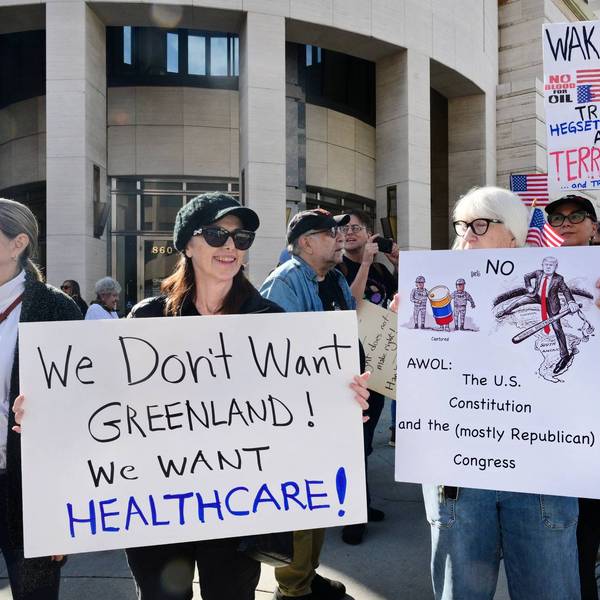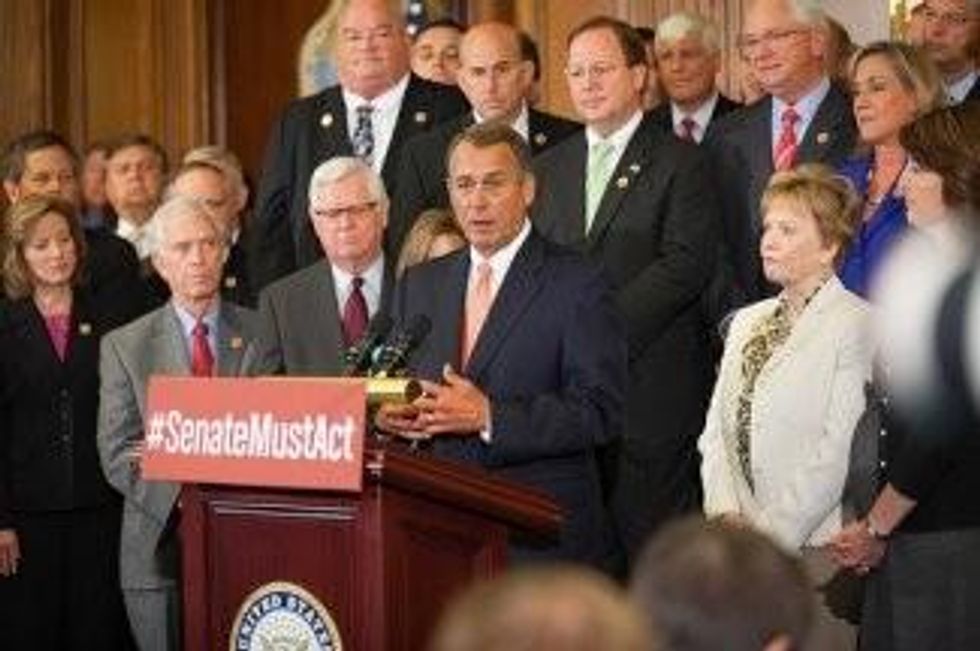It is understandable that the public is disgusted with Washington; they have every right to be. At a time when the country continues to suffer from the worst patch of unemployment since the Great Depression, the government is shut down over concerns about the budget deficit.
There is no doubt that the
Republicans deserve the blame for the shutdown and the risk of debt default. They decided that it was worth shutting down the government and risking default in order stop Obamacare. That is what they said as loudly and as clearly as possible in the days and weeks leading up to the shutdown. In fact, this is what
Senator Ted Cruz said for 21 straight hours on the floor of the
US Senate.
Going to the wall for something that is incredibly important is a reasonable tactic. However, the public apparently did not agree with the Republicans. Polls show that they overwhelmingly oppose their tactic of shutting down the government and risking default over Obamacare. As a result, the Republicans are now claiming that the dispute is actually over spending.
Anywhere outside of Washington DC and totalitarian states, you don't get to rewrite history. However, given the national media's concept of impartiality, they now feel an obligation to accept that the Republicans' claim that this is a dispute over spending levels.
But that is only the beginning of the reason that people should detest budget reporters. The more important reason is that they have spread incredible nonsense about the deficit and spending problems facing the country, causing most of the public to be completely confused on these issues. If budget reporters were held to the same standards as school teachers, with the expectation that they would be able to convey information, they would all be fired in a minute.
Contrary to the widely repeated stories of out-of-control deficits and spending, deficits have plunged in the last four years falling from 10.1% of GDP in 2009 to just 4% of GDP in 2013. The Congressional Budget Office projects the deficit to be just 3.4% of GDP in 2014. The latest projections show the debt-to-GDP ratio falling for the rest of the decade.
In other words, the story of out-of-control debts and deficits is just plain wrong. Less polite people would call it a lie, but it stands at the center of the public debate because the media consider it rude to point out a truth that would embarrass so many important politicians. The idea that we face a longer term deficit problem of enormous proportions has little better grounding in reality. First, it is worth noting that we have not had a constant upward path of spending as is widely asserted in Washington, and widely believed around the country, due to the incompetence of budget reporters.
During the Reagan presidency spending averaged more than 22% of GDP, peaking at 23.5% in 1985. This year it is projected to be 21.6% of GDP. The latest CBO projections show spending rising back to Reagan era levels towards the end of the 10-year budget window.
Over a longer term, spending is projected to rise further due to projections of rising health care costs and a growing interest burden, which is the result of a growing debt. The deficit fear mongers like to hype these projections of large deficits decades in the future to advance their agenda of cutting Social Security and Medicare.
The reality is that the story of exploding interest burdens is utter nonsense since there is zero precedent for the country ever allowing the debt to expand in this way. This makes as much sense as arguing that someone driving west in New Jersey risks falling into the Pacific Ocean. People driving west in New Jersey invariably turn or park their calls before ending up in the Pacific Ocean and the United States has always taken measures to reduce deficits long before they posed a fundamental threat to the economy.
The real question is why the primary (ie non-interest) deficit rises and this is the story of the broken US healthcare system. We pay twice as much per person for our health care as the average for other rich countries, with nothing to show for this money in terms of outcomes. We pay 2.5 times as much as the UK. If our costs were at all in line with those in other wealthy countries, we would be looking at explosive budget surpluses running into the trillions of dollars annually.
This fact raises the obvious question, why are projections of deficits based on unaffordable healthcare costs always treated in the media as a basis for cutting benefits to seniors rather than a reason for cutting payments to providers like doctors, drug companies, and medical device companies?
There is no explanation except the bias of the media. Obviously they identify much more with rich doctors and the people who profit from the bloated prices charged in the United States by drug companies and medical equipment providers than with the seniors who are dependent on Social Security and Medicare.
Yes, the public has every right to be disgusted.




